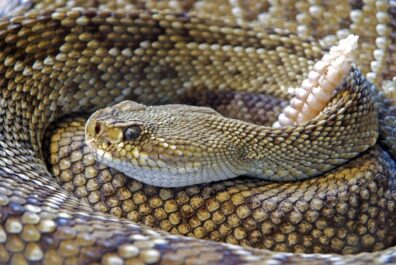Dear Raagini,
One of my roommates is a corn snake named Buddy. He’s not venomous. But he’s a very private individual and really likes his space.
Buddy and I talked about your question with my friend Blair Perry. He’s a biologist at Washington State University. He’s an expert on snakes and venom.
Perry told me antivenom doesn’t contain actual snake venom. It’s made with antibodies to snake venom.
Antibodies are proteins. They’re part of your immune system. They travel in your blood to fight germs or dangerous molecules—like those in venom—that could hurt you. Sometimes we get vaccines to boost our antibodies so they’re ready when something harmful shows up.
But that’s not enough for snake venom.
“With a snake bite, we get so many venom molecules injected all at once,” Perry said. “Plus, they act really, really fast. There’s not enough time for the body to produce those antibodies. Even if we had antibodies from a vaccine, it probably wouldn’t be enough to respond quickly and to a large enough degree.”
So, scientists turn to big animals with strong immune systems—like horses—to make antivenom. First, they take venom from snakes. They inject horses with teeny amounts of that venom. It’s not enough venom to hurt the horse. But the horse’s body begins cranking out antibodies to the venom. Eventually, scientists can take some of the horse’s blood. They clean it up in a lab to pick out the antibodies and make it safe for people. That’s antivenom.
Antivenom works because those horse antibodies stop the venom from doing more damage to your body. They also show your own antibodies where to go and how to fight the venom.

There isn’t just one antivenom though.
“Antivenoms are specific to different types of snakes,” Perry said. “Antivenom for one kind of rattlesnake might work for other rattlesnakes or viper species with similar venom. But it might not work for cobras because cobra venom is so different.”
That’s not a problem in the United States. There aren’t many kinds of venomous snakes here. If a snake bites you, you should go to the hospital calmly and quickly. Doctors will give you antivenom if you need it.
But it’s a huge problem in other parts of the world. Some places have lots of venomous snakes. Some of those places have few resources like hospitals and labs to make antivenom.
Scientists want to make a new kind of antivenom. It would be made in a lab without snakes and horses. Hopefully, it would be easier to get this antivenom to people who need it most.
That’s why biologists like Perry study how venom works. Or why some animals—like the opossum—aren’t hurt by snake venom.
Of course, most snakes are nonvenomous like Buddy. Venomous or not, it’s important to give snakes lots of space. If you see a snake in the wild, admire it from a respectful distance.
It’s the best way to ssssstay sssssafe and sssssupport sssssnakes at the same time.
Sincerely,
Dr. Universe